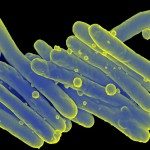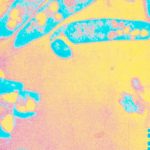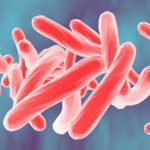Lien vers Pubmed [PMID] – 24722524
Lien DOI – e278610.1371/journal.pntd.0002786
PLoS Negl Trop Dis 2014 Apr; 8(4): e2786
Buruli ulcer is a skin disease caused by Mycobacterium ulcerans that is spreading in tropical countries, with major public health and economic implications in West Africa. Multi-analyte profiling of serum proteins in patients and endemic controls revealed that Buruli ulcer disease down-regulates the circulating levels of a large array of inflammatory mediators, without impacting on the leukocyte composition of peripheral blood. Notably, several proteins contributing to acute phase reaction, lipid metabolism, coagulation and tissue remodelling were also impacted. Their down-regulation was selective and persisted after the elimination of bacteria with antibiotic therapy. It involved proteins with various functions and origins, suggesting that M. ulcerans infection causes global and chronic defects in the host’s protein metabolism. Accordingly, patients had reduced levels of total serum proteins and blood urea, in the absence of signs of malnutrition, or functional failure of liver or kidney. Interestingly, slow healers had deeper metabolic and coagulation defects at the start of antibiotic therapy. In addition to providing novel insight into Buruli ulcer pathogenesis, our study therefore identifies a unique proteomic signature for this disease.




